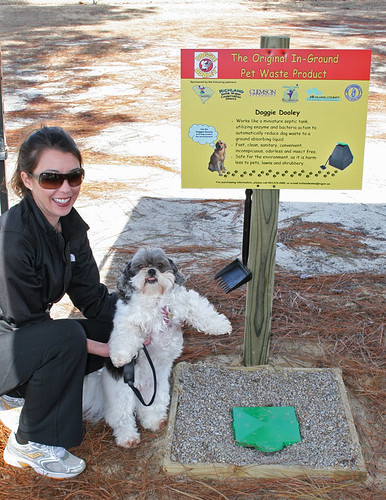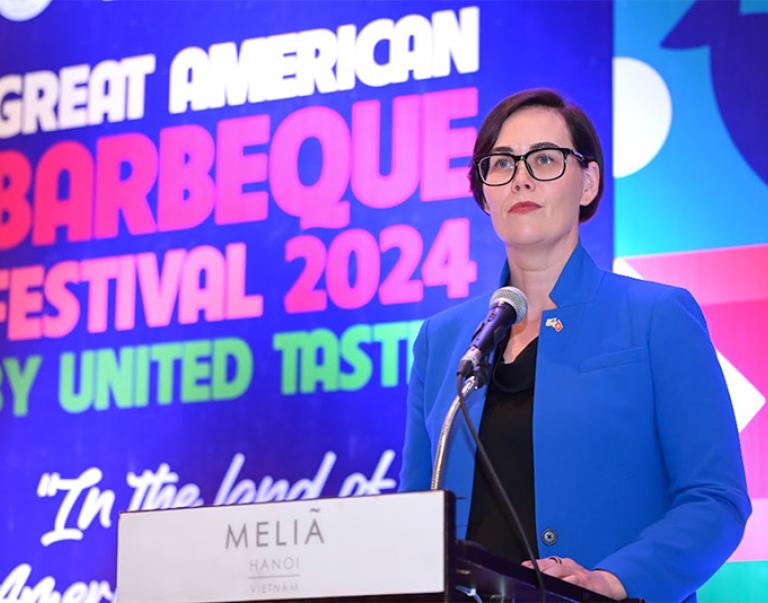Dog waste that isn’t cleaned up isn’t just a hazard for the bottom of your shoes—it is also a cause of pollution in creeks, rivers and lakes across the country. Dog waste contains nitrogen and phosphorus, which can deplete oxygen that fish and other water-based life need to survive, as well as encourage the growth of harmful algae. It is also considered a significant source of pathogens like fecal coliform, a disease-causing bacteria.
To encourage pet owners to pick up their dogs’ waste, South Carolina’s Richland County recently installed environmentally friendly pet waste disposal systems in five of its parks. The project was spearheaded by the East Piedmont Resource Conservation and Development (RC&D) Council, which worked with Richland Soil & Water Conservation District (SWCD), Clemson Extension, Richland County Recreation Commission, Richland County Conservation Commission and the City of Columbia to implement it.
Through local RC&D councils, the Resource Conservation and Development (RC&D) program helps communities plan and carry out projects that increase natural resources conservation, support economic development and enhance the local environment and standard of living. The RC&D program is administered by USDA’s Natural Resources Conservation Service (NRCS).
The innovative pet waste disposal system in Richland County’s parks offers an eco-friendly, sanitary and easy solution to pet waste pollution. Installed in-ground, the system acts as a miniature septic tank, utilizing enzymes and bacteria to turn dog waste into a harmless ground-absorbed liquid. The resulting liquid is odorless and harmless to pets, lawns and shrubs.
“We are installing these systems throughout city parks to teach residents how they work, and what the benefits are, in hopes that individual homeowners will install them in their own yards,” explained East Piedmont RC&D Coordinator Reginald Hall.
Every station has a sign nearby to explain proper use and to highlight the environmental benefits of “scooping the poop.” Signs also include contact information for the Richland SWCD, from where individual homeowners can purchase their own systems for $47.50.
“Pet waste is a significant, yet preventable, water pollutant,” Hall said. The systems ultimately help protect and improve water quality in the entire urban watershed because they limit harmful runoff that can contaminate nearby bodies of water. The American Veterinary Medical Association estimates that U.S. households included over 70 million dogs in 2007—that’s a lot of poop!
For more information about the Resource Conservation & Development Program, please visit our website.
Check out more conservation stories on the USDA blog.
Follow NRCS on Twitter.




